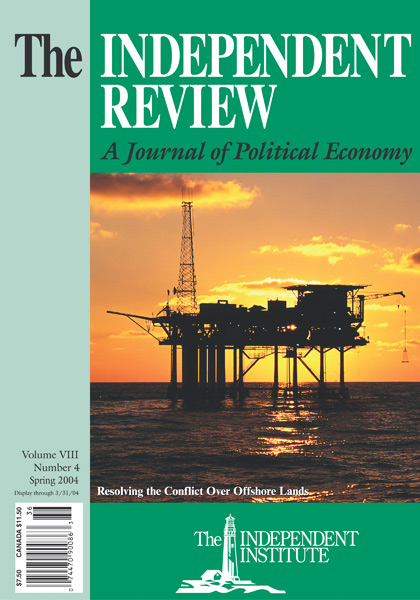Oil leaks and spills are the most visible externality associated with offshore development, but public policy must also take into account another type of negative externality: cost-shifting through the political process (such as when environmentalists successfully lobby to ban offshore oil drilling). Fortunately, both environmental and political externalities can be resolved through the often-neglected institution of private-property rights.
John Brätland is an economist with the U.S. Department of the Interior in Washington, D.C.
EconomyEnergy and the EnvironmentEnvironmental Law and RegulationFree Market EconomicsLand UseLaw and LibertyNatural ResourcesPollutionPrivatizationProperty Rights, Land Use, and ZoningPublic Choice
| Other Independent Review articles by John Brätland | |
| Summer 2020 | Efficiency as Undetermined Allocation: On a “Just” Privatization of U.S. Offshore Resources |
| Summer 2010 | Capital Concepts as Insights into the Maintenance and Neglect of Infrastructure |
| Winter 2007/08 | Resource Exhaustibility: A Myth Refuted by Entrepreneurial Capital Maintenance |









